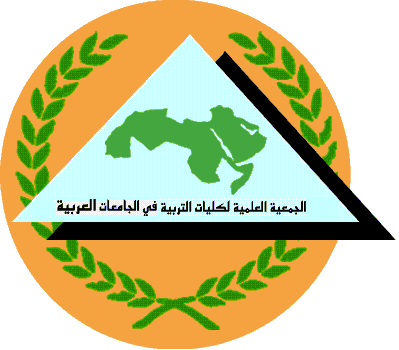Association of Arab Universities Journal for Education and Psychology

Abstract
هدفت الدراسة إلى فحص العلاقة بين النجاح الزواجي، والتنافر، والخلاف مع أهل الزوج. إذ تفترض الدراسة أن نوعية العلاقة بأهل الزوج يمكن أن تتنبأ بنجاح العلاقة الزوجية بين الشريكين مقاسة بدرجة الرضا، والسعادة الزوجية لكل منهما، وبالمقابل فإن التنافر مع أهل الزوج سوف يخفض الاستقرار الزواجي، والرضا الزواجي، والالتزام تجاه الحياة الزوجية.
ولتحقيق هدف الدراسة تم اختيار عينة متيسرة ضمت ۹۷ زوجة و ۱۲۳ زوجة ليس بينهم صلة اختيروا بطريقة كرة الثلج بحيث تكون قد مرت على زواج الواحد منهم سنتان على الأقل بحيث لا تزيد مدة الزواج علی ۲۰ سنة، ويكون لدى الزوج طفل واحد على الأقل، وأن يكون والدا الزوج، أو أحدهما على قيد الحياة.
استخدمت مجموعة من المقاييس لقياس النجاح الزواجي، والتنافر مع أهل الزوج بالإضافة إلى مجموعة من المتغيرات الديموغرافية.
وأظهرت النتائج علاقة ارتباط موجبة ودالة إحصائيا بين النجاح الزواجي لكل من الذكور والإناث والسعادة بالعلاقة مع أهل الزوج في حين ارتبط النجاح الزواجي ارتباط سالبة، وذا دلالة مع كثرة الخلافات مع أهل الزوج، وكثرة طلبات أهل الزوج، وأظهر تحليل الانحدار المتعدد أن الخلافات مع والد الزوجة، والتعلق الأمن، وعدد الأطفال فسرت 14.9% من التباين في النجاح الزواجي للذكور، وفسر الخلاف مع والدة الزوج وحده 19.1% من التباين في النجاح الزواجي للإناث.
أما العوامل التي أسهمت في تفسير التباين في التنافر مع الحماة فكانت طبيعة العلاقة مع الحماة، وفسرت 70.8% من التباين بالنسبة للذكور، و60.9% من التباين للإناث، والتوافق في القيم، وفسرت ۲.۲% من التباين للذكور و 2.8% للإناث.
أما بالنسبة للتنافر مع والد الزوج أو الزوجة ففسرت طبيعة العلاقة معه 41.5%، والتوافق في القيم 6.8% من التباين للذكور، في حين فسر التوافق في القيم مع والد الزوج وحده 41.5% من التباين للإناث.
The study aimed to examine the relationship between marital success, disharmony, and disagreement with the in-laws. The study assumes that the quality of the relationship with the husband’s family can predict the success of the marital relationship between the two partners, measured by the degree of satisfaction and marital happiness for each of them. In contrast, disharmony with the husband’s family will reduce marital stability, marital satisfaction, and commitment to married life.
To achieve the objective of the study, an accessible sample of 97 wives and 123 unrelated wives was selected. They were chosen by the snowball method, so that at least two years had passed since the marriage of one of them, so that the marriage period did not exceed 20 years, and the husband had at least one child, and that The husband's parents, or one of them is alive.
A set of scales were used to measure marital success, disharmony with the in-laws, in addition to a set of demographic variables.
The results showed a positive and statistically significant correlation between marital success for both males and females and happiness in the relationship with the husband’s family, while marital success was negatively and significant with the large number of disagreements with the husband’s family, and the large number of requests by the husband’s family, and the multiple regression analysis showed that the differences with the wife’s father , secure attachment, and number of children explained 14.9% of the variance in marital success for males, and disagreement with the husband's mother alone explained 19.1% of the variance in marital success for females.
As for the factors that contributed to explaining the dissonance with the mother-in-law, they were the nature of the relationship with the mother-in-law, and they explained 70.8% of the variance for males, and 60.9% of the variance for females, and the agreement in values, and they explained 2.2% of the variance for males and 2.8% for females.
As for the disharmony with the father-in-law or the wife, the nature of the relationship with him explained 41.5%, and the compatibility in values 6.8% of the variance for males, while the compatibility in values with the father-in-law alone explained 41.5% of the variance for females.
Recommended Citation
داوود, نسيمة
(2022)
"أثر العلاقة بأهل الزوج في السعادة الزوجية. (دراسة ميدانية في الأردن). The impact of the relationship with the husband's family on marital happiness. (A field study in Jordan).,"
Association of Arab Universities Journal for Education and Psychology: Vol. 14:
Iss.
1, Article 2.
Available at:
https://digitalcommons.aaru.edu.jo/aaru_jep/vol14/iss1/2

